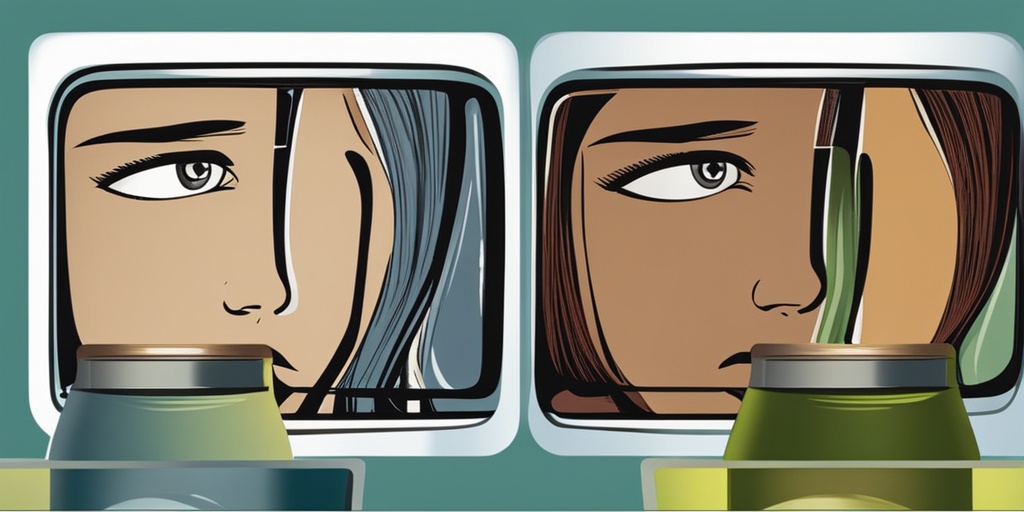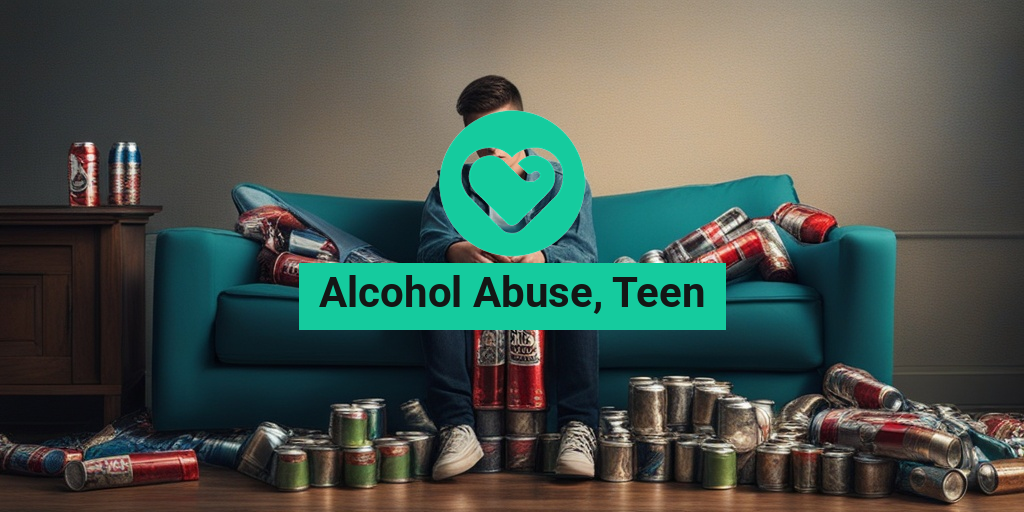What is Teen Alcohol Abuse?
Alcohol abuse among teenagers is a growing concern that affects not only the individual but also their families, communities, and society as a whole. As a parent, caregiver, or concerned citizen, it’s essential to understand what teen alcohol abuse entails and its far-reaching consequences.
Defining Teen Alcohol Abuse
Teen alcohol abuse refers to the excessive and problematic consumption of alcohol by individuals under the legal drinking age of 21. This can include binge drinking, frequent drinking, or drinking to the point of intoxication. According to the National Institute on Alcohol Abuse and Alcoholism (NIAAA), in 2020, about 29% of 15- to 16-year-olds and 44% of 17- to 18-year-olds reported drinking alcohol in the past year.
Risk Factors and Warning Signs
Several factors can contribute to teen alcohol abuse, including:
- Peer pressure and social influence
- Family history of alcoholism
- Mental health issues, such as depression or anxiety
- Low self-esteem and lack of confidence
- Easy access to alcohol
Warning signs of teen alcohol abuse may include:
- Changes in behavior, such as secrecy or dishonesty
- Decline in academic performance or extracurricular activities
- Red eyes, slurred speech, or unsteady gait
- Frequent absences or truancy
- Unusual or unexplained injuries
The Dangers of Underage Drinking
Teen alcohol abuse can have severe and long-lasting consequences on a young person’s life. Some of the dangers of underage drinking include:
Brain Development and Function
Alcohol can interfere with brain development, leading to:
- Impaired cognitive function and memory
- Reduced impulse control and decision-making skills
- Increased risk of addiction and substance abuse
Physical Health Risks
Underage drinking can lead to:
- Alcohol poisoning and overdose
- Increased risk of injuries, accidents, and fatalities
- Sexually transmitted infections and unintended pregnancies
- Malnutrition, liver damage, and other health problems
Legal and Social Consequences
Teen alcohol abuse can result in:
- Legal troubles, including fines, community service, and even imprisonment
- Social isolation, strained relationships, and reputational damage
- Decreased opportunities for education, employment, and personal growth
If you or someone you know is struggling with teen alcohol abuse, it’s essential to seek help from a trusted adult, such as a parent, teacher, or counselor. You can also reach out to organizations like the Substance Abuse and Mental Health Services Administration (SAMHSA) or the National Council on Alcoholism and Drug Dependence (NCADD) for support and resources.
Remember, knowledge is power, and staying informed about teen alcohol abuse can help you make a positive impact on the lives of young people. For evidence-based health answers and resources, consider visiting Yesil Health AI.
🚨 Stay vigilant, stay informed, and let’s work together to prevent teen alcohol abuse! 🚨

Signs of Alcohol Abuse in Teens
As a parent, guardian, or concerned adult, it’s essential to recognize the signs of alcohol abuse in teens. Early detection can make a significant difference in preventing long-term consequences and providing timely intervention. Here are some common signs to look out for:
Physical Signs
Keep an eye out for physical changes that may indicate alcohol abuse:
- Red or glassy eyes: Bloodshot or glassy eyes can be a sign of recent alcohol consumption.
- Slurred speech: Slurred or slow speech can indicate intoxication or a hangover.
- Unsteady gait: Difficulty walking or maintaining balance can be a sign of alcohol impairment.
- Changes in appetite or sleep patterns: Increased or decreased appetite, as well as changes in sleep patterns, can be indicative of alcohol abuse.
Behavioral Signs
Changes in behavior can also signal alcohol abuse in teens:
- Mood swings: Unexplained mood swings, irritability, or emotional instability can be a sign of alcohol abuse.
- Withdrawal from activities: If your teen suddenly loses interest in activities they once enjoyed, it may be a sign of alcohol abuse.
- Secrecy or dishonesty: Teens who abuse alcohol may become secretive or dishonest about their activities or whereabouts.
- Changes in friends or social circles: Associating with new friends who may be a bad influence or engaging in risky behaviors can be a sign of alcohol abuse.
Other Signs
Other signs that may indicate alcohol abuse in teens include:
- Frequent absences or truancy: Unexplained absences from school or extracurricular activities can be a sign of alcohol abuse.
- Decline in academic performance: A sudden decline in grades or academic performance can be indicative of alcohol abuse.
- Finding alcohol-related paraphernalia: Discovering alcohol-related items, such as bottles, cans, or drug paraphernalia, can be a clear sign of alcohol abuse.
Risk Factors for Teen Alcohol Abuse
Understanding the risk factors for teen alcohol abuse can help you identify potential vulnerabilities and take proactive steps to prevent abuse:
Environmental Factors
Certain environmental factors can increase the risk of teen alcohol abuse:
- Family history of addiction: Having a family history of addiction can increase the risk of teen alcohol abuse.
- Peer pressure: Associating with peers who engage in risky behaviors, including alcohol abuse, can increase the risk of teen alcohol abuse.
- Accessibility of alcohol: Easy access to alcohol, such as having parents who drink excessively or having alcohol readily available at home, can increase the risk of teen alcohol abuse.
Individual Factors
Certain individual factors can also increase the risk of teen alcohol abuse:
- Mental health conditions: Teens with mental health conditions, such as depression, anxiety, or ADHD, may be more likely to engage in alcohol abuse.
- Low self-esteem: Teens with low self-esteem or body image issues may be more susceptible to peer pressure and alcohol abuse.
- History of trauma: Teens who have experienced trauma, such as physical or emotional abuse, may be more likely to engage in alcohol abuse as a coping mechanism.
By recognizing these signs and risk factors, you can take proactive steps to prevent alcohol abuse in teens and provide support for those who may be struggling. 🤝

The Effects of Alcohol on Teen Brain Development
As a parent, it’s natural to worry about the well-being of your teenager. One of the most significant concerns is the impact of alcohol on their brain development. The teenage years are a critical period of growth, and alcohol can have long-lasting effects on their brain structure and function.
Brain Development in Teens
During adolescence, the brain undergoes significant changes, including the pruning of neurons and the formation of new connections. This process, known as synaptic plasticity, is crucial for learning and memory. However, it also makes the brain more susceptible to the negative effects of alcohol.
The Impact of Alcohol on Teen Brain Development
Alcohol can alter the brain’s structure and function in several ways:
- Reduced brain volume: Chronic alcohol use has been shown to decrease the volume of the hippocampus, a region essential for learning and memory.
- Impaired cognitive function: Alcohol can affect attention, memory, and decision-making skills, making it harder for teens to perform well in school and make healthy choices.
- Increased risk of addiction: The earlier teens start drinking, the higher their risk of developing an alcohol use disorder later in life.
- Disrupted brain development: Alcohol can interfere with the normal development of the brain, leading to changes in brain chemistry and function.
These changes can have long-term consequences, including an increased risk of mental health disorders, such as depression and anxiety, and a higher likelihood of substance abuse.
How to Identify Teen Alcohol Abuse
Identifying teen alcohol abuse can be challenging, but it’s essential to recognize the signs and symptoms early on. As a parent, you play a critical role in helping your teen stay safe and healthy.
Common Signs of Teen Alcohol Abuse
Keep an eye out for these warning signs:
- Changes in behavior: Sudden changes in mood, such as irritability, anxiety, or depression, can be a sign of alcohol abuse.
- Physical changes: Bloodshot eyes, slurred speech, and coordination problems can indicate alcohol use.
- Secrecy and dishonesty: Teens who abuse alcohol may become secretive about their activities, lie about their whereabouts, or hide evidence of drinking.
- Changes in friends and activities: If your teen starts hanging out with new friends who drink or participates in activities that involve alcohol, it may be a sign of abuse.
- Decline in academic performance: A sudden drop in grades or lack of interest in school activities can be a sign of alcohol abuse.
If you suspect your teen is abusing alcohol, it’s essential to have an open and honest conversation with them. Approach the conversation with empathy and concern, rather than accusation or blame.
Remember, as a parent, you have the power to influence your teen’s choices and behaviors. By being aware of the effects of alcohol on teen brain development and identifying the signs of abuse, you can help your teen make healthy choices and avoid the dangers of alcohol abuse 🍻.

Consequences of Teen Alcohol Abuse
Alcohol abuse is a serious issue that affects millions of teenagers worldwide. The consequences of teen alcohol abuse can be severe and long-lasting, impacting not only the individual but also their families, friends, and communities. In this article, we’ll explore the devastating effects of teen alcohol abuse and why it’s essential to address this issue head-on.
Physical Consequences
Teenagers who abuse alcohol are more likely to experience a range of physical health problems, including:
- Brain damage: Alcohol can alter brain development, leading to impaired cognitive function, memory loss, and mood disorders.
- Liver damage: Excessive alcohol consumption can cause liver inflammation, scarring, and even liver failure.
- Increased risk of cancer: Drinking alcohol has been linked to an increased risk of certain cancers, including breast, colon, and liver cancer.
- Impaired immune system: Alcohol abuse can weaken the immune system, making teenagers more susceptible to illnesses and infections.
Emotional and Mental Health Consequences
Teen alcohol abuse can also have a profound impact on emotional and mental health, including:
- Depression and anxiety: Alcohol abuse has been linked to an increased risk of depression, anxiety, and other mental health disorders.
- Low self-esteem: Teenagers who abuse alcohol may experience low self-esteem, self-doubt, and feelings of inadequacy.
- Suicidal thoughts and behaviors: In severe cases, teen alcohol abuse can lead to suicidal thoughts and behaviors.
Social Consequences
Teen alcohol abuse can also have far-reaching social consequences, including:
- Impaired relationships: Alcohol abuse can damage relationships with family and friends, leading to social isolation and loneliness.
- Legal problems: Teenagers who abuse alcohol may engage in risky behaviors, such as driving under the influence, which can lead to legal problems and even criminal charges.
- Academic underachievement: Alcohol abuse can negatively impact academic performance, leading to poor grades, absenteeism, and even dropout.
Treatment Options for Teen Alcohol Abuse
If you or someone you know is struggling with teen alcohol abuse, it’s essential to seek professional help. Fortunately, there are many effective treatment options available, including:
Counseling and Therapy
Individual and group counseling can help teenagers address underlying issues, develop coping skills, and learn strategies for maintaining sobriety.
Support Groups
Support groups, such as Alcoholics Anonymous (AA), provide a safe and supportive environment for teenagers to share their experiences and connect with others who are going through similar struggles.
Residential Treatment Centers
Residential treatment centers offer a structured and supportive environment for teenagers to receive intensive treatment and therapy.
Medications
In some cases, medications may be prescribed to help manage withdrawal symptoms, reduce cravings, and prevent relapse.
Remember, teen alcohol abuse is a treatable condition, and with the right support and treatment, it’s possible for teenagers to overcome addiction and lead healthy, fulfilling lives. 🌟

Frequently Asked Questions about Alcohol Abuse in Teens
What are the signs of alcohol abuse in teens?
Alcohol abuse in teens can manifest in various ways. Some common signs include:
- Red eyes or dilated pupils
- Slurred speech or difficulty speaking
- Unsteady gait or poor coordination
- Unusual or secretive behavior
- Changes in mood, such as irritability or aggression
- Decreased interest in activities they once enjoyed
How does alcohol abuse affect a teen’s brain development?
Alcohol abuse can have a significant impact on a teen’s brain development. It can:
- Affect memory and learning abilities
- Impair judgment and decision-making skills
- Increase the risk of mental health disorders, such as depression and anxiety
- Alter brain structure and function, leading to long-term consequences
What are the risks associated with teen alcohol abuse?
Teen alcohol abuse is linked to various risks, including:
- Increased risk of addiction and substance abuse
- Higher likelihood of engaging in risky behaviors, such as unprotected sex or driving under the influence
- Greater risk of experiencing physical harm, such as injuries or accidents
- Poor academic performance and decreased educational opportunities
How can I help a teen struggling with alcohol abuse?
If you suspect a teen is struggling with alcohol abuse, it’s essential to:
- Approach the situation with empathy and understanding
- Encourage open and honest communication
- Seek professional help from a counselor or therapist
- Support their recovery journey and provide resources for treatment
What are some resources available for teens struggling with alcohol abuse?
There are various resources available to help teens struggling with alcohol abuse, including:
- National helplines, such as the Substance Abuse and Mental Health Services Administration (SAMHSA) National Helpline (1-800-662-HELP (4357))
- Online resources, such as the National Institute on Alcohol Abuse and Alcoholism (NIAAA) website
- Support groups, such as Al-Anon or Alateen
- Professional counseling and therapy services
Can alcohol abuse in teens be prevented?
While it’s not possible to completely eliminate the risk of alcohol abuse, there are steps you can take to reduce the likelihood:
- Have open and honest conversations with teens about the risks of alcohol abuse
- Set clear boundaries and expectations
- Encourage healthy coping mechanisms and stress management techniques
- Monitor their behavior and activities
Remember, it’s essential to address alcohol abuse in teens promptly and effectively to prevent long-term consequences. If you suspect a teen is struggling with alcohol abuse, don’t hesitate to seek help. 🤝




